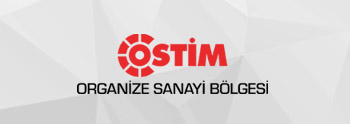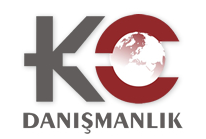HELAL BELGESİ ( SERTİFİKASI ) NEDİR?
Helal Belgesi İslami kurallara (Şafi, Maliki, Hanbeli ve Hanefi mezhepleri uyarınca) uygun olarak hazırlanan veya üretilen gıda ürünlerine verilen sertifikadır.
Helal Belgesi İslam dinine göre yasak olmayan ürünlere verilen uluslararası bir belgedir.
HELAL GIDA BELGELENDİRME SÜRECİ :
Belgelendirme firmasına yazılı olarak yada telefon ile irtibata geçerek Helal Belgesi başvurusu yapılır.
Belgelendirme firmasıyla beraber Helal Belgesi kapsamındaki ürün tiplerinin ve içerdiği bileşen bilgileri gözden geçirilir.
Tesisin helal standardı kapsamında denetimi ve onaylanması ( Bu kısım üretim ekipmanının gözden geçirilmesini, katılan bileşenlerin, temizlik prosedürlerinin, sanitasyonun ve çapraz bulaşma riskinin denetlenmesini içermektedir)sağlanır.
Kesimhaneler için; hayvanların tutulduğu alanların, bayıltma metodunun, doğru kesimin, kesimden önce ve sonra yapılması gerekenlerin helal standardı kapsamında denetlenir ve gözden geçirilir.
Helal sertifikasyonu için gereken masrafın ve ücret içeriği belirlenir ve sözleşme yapılır.
Gerekli masraflar,harçlar ve ücretler ödenir.
Uygun bulunulması durumunda Helal Belgesi (sertifika) hazırlanır.
HELAL BELGESİ GIDA STANDARDININ DIŞINDAKİ ÜRÜNLER :
Haram olan aşağıdaki türler hariç tüm gıdalar Helal kabul edilmiştir ve Helal Belgesi verilebilmektedir;
- Domuz/domuz eti ve bunlardan üretilen ürünler,
- Uygunsuz kesilen hayvanlar yada kesimden önce ölen hayvanlar,
- Alah'ın dışında herhangi bir ilah ismi altında kesilen hayvanlar,
- İçeriğinde alkol ve sarhoş edici maddeler bulunan,
- Etçil hayvanlar, avlanmış kuşlar ve dışarıda kulağı olmayan kara hayvanları,
- Kan ve kandan yapılmış ürünler,
- Yukarıdaki ürünlerin herhangi biri ile temas eden ürünler.
Orijinlerinin bilinmemesi sebebiyle helal ya da haram olarak sınıflandırılamayan jelatin, gliserin, enzimler, gıda katkı maddeleri, hayvansal yağ ve proteinler vb. gıdalar şüphelidirler.
HELAL GIDA BELGESİ HELAL GIDA SERTİFİKASI
''Helal'' belgesinin tanımı :
Müslüman toplulukların bulunduğu ülkelerde söz konusu sertifikaya sahip olmayan ürünlerin sunulmasının önünde pratik bir engel teşkil etmeye devam etmekte olduğu için , ''Helal standardının kapsamına giren gıda ve gıda dışı ürünlerde dünya pazarını hakimiyet sağlamak sizlerin elinde. Bu ürünlerde halihazırda 1,6 milyar insanın potansiyel olarak 'helal' standardı kullanıcısı olacağı düşünüldüğü için, pek çok Müslüman ve Müslüman olmayan ülke üreticisi ve ihracatçısı 'helal' etiketini elde etmek yoluna gitmektedir.İhraç ürünlerimiz söz konusu sertifikanın yokluğunda Müslüman tüketiciler nazarında geri plana düşebilmekte ve ürünlerimizin helal olmadığı gibi bir yanlış algılama nedeniyle rekabet etmekte zorlanmaktadır.
Helal, dinin kurallarına aykırı olmayan, dinî bakımdan yasaklanmamış olan, izin verilmiş anlamına gelen Arapça bir kelimedir.
Helal'in karşıtı, din kurallarına aykırı olan, dinî bakımdan yasak olan anlamına gelen Haram 'dır.
Helal gıdalar, İslami kurallara uygun olarak üretilen gıdalardır.
Birçok ürün için Helal yada Haram açıkça bellidir. Ancak bazı ürünlerin helal olup olmadığı konusunda belirsizlik söz konusudur. Bu tür ürünlerin helal ya da haram olarak sınıflandırılabilmesi için daha fazla bilgiye ihtiyaç vardır.
Helal olduğu açıkça belli olan gıdalar; ekmek, meyve, su gibi.
Haram olduğu açıkça belli olan gıdalar; şarap, domuz eti, ölü hayvan eti gibi.
Helal ya da haram olduğu açıkça belli olmayan gıdalar. Bunlar, bazı yönleriyle helal, bazı yönleriyle haram olarak değerlendirilebilecek özellikte olabilirler.
HELAL BELGESİ ( SERTİFİKASI ) YARARLARI NELERDİR?
Helal Gıda Sertifikası, ürünleri, katkı maddelerini, hazırlama ve işleme yöntemlerini, temizlik ve sağlık şartlarını, katı güvenlik kuralları içinde denetleyen tarafsız bir bilir kişi hizmeti sunar.
Helal Gıda Sertifikası HACCP, ISO ve diğer kalite ve güvenlik standartlarına uygun ve yeni teknolojilere, yeni katkı maddelerine adaptasyonu seri bir şekilde takip edebilen, helal bilginin eğitimini almış kilit personel tarafından denetimi gerçekleştirir.
Helal Gıda Sertifikası , ürünün ve üreticinin Küresel İslam içinde tanınmasını ve tanıtılmasını sağlar.
Çeşitli ülkelerde açılan fuarlarda katılımına destek verir.
HELAL BELGESİ ( SERTİFİKASI ) ARANAN ŞARTLAR NELERDİR?
- Helal sertifikasının verilmesi için ürünün ham maddeden başlayarak mamül madde aşamasına, hatta üretilip paketlenmesine kadar bütün proseslerinin, ürün bileşiminde bulunan bütün maddelerin ve katkı maddelerinin gerek menşei, gerek temin biçimi ve yolları, gerekse temin kaynağı bakımından İslami kriterlere ve insani gereklere Helal sertifikası şartlarına uygun olması gerekir.
- Ürünün paketleme malzemelerinin ve depolama şartlarının insani gereklere ve İslami kriterlere uygun olması Helal sertifikası için önemli bir unsurdur.
- İyi üretim uygulamaları(GMP), iyi hijyen uygulamaları(GHP) ve HACCP şartlarını sağlamalıdır.
- Helal sertifikası için gerek ürünün üretim aşamalarında, gerek ürün bileşiminde yer alan bütün unsurlarda, gerekse ürün bileşimindeki her bir unsurun üründe bir araya gelmesiyle oluşabilecek etkilerinde İslami kriterlere, insani gereklere, sağlık ve temizlik şartlarına, beslenme bakımından gerekliliğe Helal sertifikası için uygun vasıfları taşıması.
Helal sertifikasının tüm dünyada geçerli olması çok önemlidir.
Dünya Helal Örgütüne (World Halal Council, WHC) üye olan belgelendirme kuruluşlarından alınan helal belgeleri de tüm dünya ülkelerinde geçerlidir.


